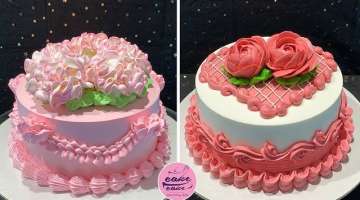Popular Indoor Plants for Tropics
When gardening is pursued indoors as a hobby, it is known as indoor gardening. Indoor gardening can be a leisure-time pursuit or a main hobby for plant lovers. Indoor gardening may be practiced as a practice of horticulture therapy where therapeutic benefits of indoor plants are exploited to the benefits of inhabitants.
- 1 | 14

When a garden is created indoors, it is called an indoor garden. An indoor garden may created indoors of residential as well as commercial buildings. That is, an indoor garden may be created inside residential buildings like individual houses, private villas, and apartments or inside a commercial establishment such as a hotel, hospital, and a business office.
- 2 | 14

As mentioned earlier, indoor plants are used to decorate interior spaces of residential as well as commercial buildings. Hence great care must be taken while arranging indoor plants so that aesthetics of interiors must be enhanced to the maximum point.
- 3 | 14

While arranging indoor plants, they may be placed either in suitable combinations or as a single specimen piece. For a large room, group of bold leaved large plants must be placed against a big wall. Single plant specimens are most suitable for small rooms.
- 4 | 14

Tall plants like philodendron and rubber plant are best suited for rooms with horizontal lines whereas tall monstera plants and large ferns are most suitable for rooms done in contemporary style with simple straight lines.
- 5 | 14

Ficus, diffenbachia and dracaena are best suited for traditional rooms with ornamental furniture. Plants with red, pink and orange flowers like amaryllis or chrysanthemum are most suitable plants for rooms with white or light colored background. Plants with bright colored foliage like coleus and caladium may also be suitable for decorating such rooms
- 6 | 14

White flowered plants are best for rooms with dark background while plants with variegated foliage like caladium may also create similar effect.
- 7 | 14

As far as placing of ferns are concerned, a group of different varieties of ferns should be grouped together to get the best visual effect while in case of begonias, a group of different varieties of begonias should be grouped together to get the best visual effect. While grouping indoor plants for dark corners of the rooms, height of individual plants must be taken into consideration.
- 8 | 14

Tall plants are arranged at the back; medium tall at the centre; and dwarf trailing ones are arranged at the front. While grouping of plants in centre of a hall or room is concerned, tall plants must be placed at the centre; medium tall plants arranged around tall plants; and dwarf ones along the edge.
- 9 | 14

Best plants for such arrangements are potted chrysanthemums; potted asters; potted coleus and caladium. Best indoor plants for table decorations are plants grown in terrariums and glass cases; plants grown in bottles; bowls; dishes and troughs; and aquarium cases.
- 10 | 14

Indoor plants may also be used for creating miniature landscapes inside the houses. By using suitable combinations of foliage and flowering plants miniature landscapes such as woodland scenes; desert scenes or formal garden scenes can be created.
- 11 | 14

Indoor plants can be displayed in beautiful combinations on floors; window sills and window ledges; tables and desks; book cases and book shelves; shelves and trolleys; window boxes and planters and on plant stands placed on the floor.
- 12 | 14

Indoor plants can be displayed in beautiful combinations on floors; window sills and window ledges; tables and desks; book cases and book shelves; shelves and trolleys; window boxes and planters and on plant stands placed on the floor.
- 13 | 14

texture and size of the containers should harmonize with those of the plants and the setting of the room.
- 14 | 14

Living and dining room spaces can be divided with beautiful planters having gorgeous foliage and flowering plants for enhancing overall aesthetics of the room.



















